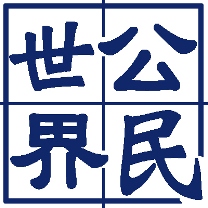Eddy和外籍老闆一起去pitch一個大案子,簡報做得很精采,客戶也很欣賞。結束後,老闆說:“We’ve got it in the bag.”老闆是說「把東西裝袋子裡」嗎?今天來看bag這個字的用法。
1.We’ve got it in the bag.
(X)我們把它放在袋子裡。(O)我們穩操勝算。
In the bag有十拿九穩、勝券在握的意思。從字面上來看,東西放到袋子裡,就跑不掉了,和中文的「囊中之物」有異曲同工之妙。
- The game is in the bag.
(這場比賽贏定了。) - He has got the election in his bag.
(他在選舉中穩操勝券。)
2.Cooking is not my bag!
(X)這不是我的烹調包。(O)我對烹飪沒興趣。
聽到That is not my bag,意思不是「那不是我的包包」。Someone’s bag字面上是某人的包包,但它也經常用來表示,某人特別喜歡或關心的東西。因此,“That is not my bag.”可以指「那不是我喜歡的事」。
- Tennis isn't really my bag, I'm afraid.
(恐怕我對網球不是很感興趣。)
3.Someone’s got bags of money.
(X)他有一袋錢。(O)他很有錢。
Bags of…..指「有很多⋯⋯」,很多錢是bags of money,很多時間是bags of time,很多空間是bags of room。
- Come and stay with us, we've got bags of room.
(來跟我們一起住吧,我們那邊地方很大。)
- No need to rush, we’ve got bags of time.
(不用那麼急,我們時間很充裕。)
4.Bag a seat
(X)打包座位(O)佔位子
Bag當動詞時,有「搶先得到」的意思。例如:
- Bag us some decent seats if you get there first, won't you?
(如果你先到,就幫我們佔幾個好位子。)
- Hopefully, the government can bag a good deal with foreign investors to upgrade transport services.
(政府很有希望搶先拿到海外資金以提升運輸服務。)
責任編輯:倪旻勤
核稿編輯:湯明潔



